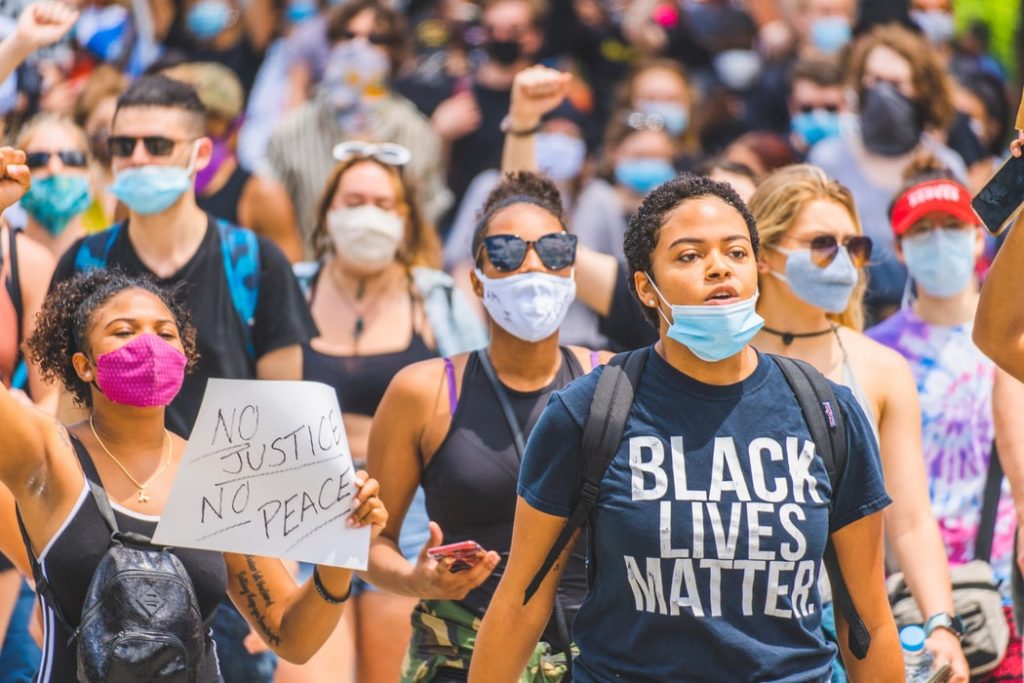Culture June 9, 2020
Nina cried power!


Speaking out and taking action are critical steps in a social movement, especially in the light of recent social injustices. For example, Nina Simone’s civil rights songs that were written in the 1960s still ring true today with Black Lives Matter protesters.
Eunice Kathleen Waymon, known professionally as Nina Simone, was a classically trained pianist. She aspired to be a concert pianist from a young age. After graduating high school as valedictorian, she attended Julliard in New York. She then auditioned to the Curtis Institute of Music in Philadelphia but, unfortunately, the school did not accept her. It later occurred to her that racism was a factor in the rejection.
Nina Simone spread civil rights messages through her songs as well as used music to “reflect the times.” History tends to repeat itself, hence why the themes she sang about are still relevant today.
In honor of the arduous activism that Simone displayed, here is a list of moving civil rights anthems, performed by Nina Simone.
First of all, Nina Simone rose to fame in the 60s as race relations heightened. It was only a matter of time until she would use her musical talents as a forthright storytelling mechanism for activism.
Nina Simone wrote and composed “Mississippi Goddam.” Many consider the controversial track to be Simone’s “first civil rights song.” It was a response to the murder of Medgar Evers and the bombing of the 16th street Baptist Church in Birmingham, Alabama.
Most unapologetic lyric: “You don’t have to live next to me, just give me my equality.”
Next, is Nina Simone’s civil rights anthem for African-Americans, which was originally recorded by Simone. A play called “To Be Young, Gifted, and Black” produced by Lorraine Hansberry inspired this serendipitous Nina Simone song. Hansberry was also Nina’s friend and the author of “A Raisin in the Sun.”
Simone explained to her musical director, Weldon Irvine, what she couldn’t express lyrically, and they had a song two days later. Nina Simone’s civil rights songs became a spark of optimism for African-American children.
Simone first experienced racism at a concert at age 12. Thus, she saw the world through the eyes of young people. Moreover, she cited this incident as to why she would later join the civil rights movement.
Most unapologetic song lyric: “There are times when I look back and I am haunted by my youth.”
The lyrics to this next song are also inspired by a written body of work. This song is based on a poem called “No Images” by Harlem Renaissance poet, William Waring Cuney.
The poem is about an African-American woman who feels ugly due to her skin color as a result of the discriminatory world she now lives in.
Most unapologetic lyric: “If she could dance naked under palm trees and see her image in the river she would know. Yes, she would know.”
As a black woman in the music industry, Nina Simone faced several oppressions. She then developed a tough-spirited attitude as a result.
Nina Simone’s civil rights songs soon shifted her purpose from artist to activist. Not only did she tackle racial matters, but she also addressed black feminism.
This stripped-down Nina Simone song is a genealogical portrayal of black women throughout the history of slavery. The song would later become the inspiration for the play Nina Simone: Four Women by Christina Ham.
Most unapologetic lyric: “I’m awfully bitter these days/Because my parents were slaves.“
Billy Taylor and Dick Dallas originally wrote, “I Wish I Knew How It Would Feel to Be Free.” Taylor released the original version (as “I Wish I Knew”) in 1967 on his album, “Right Here, Right Now!”
In the same way as Aretha Franklin’s songs, someone else originally wrote a lot of Nina Simone’s songs. Nonetheless, her interpretations were undoubtedly self-contained. As a matter of fact, Simone’s covers often gained more recognition. This is certainly the case with “I Wish I Knew How It Would Feel to Be Free.”
Most unapologetic lyric: “I wish I could break/All the chains holdin’ me.”


In short, Nina Simone’s civil rights songs were a movement. She proved that the voice is a transcendental tool. In this case, a tool to make political statements people are still influenced by.
Not only are her songs uplifting, but they are also an unapologetic demand for revolutionary action.